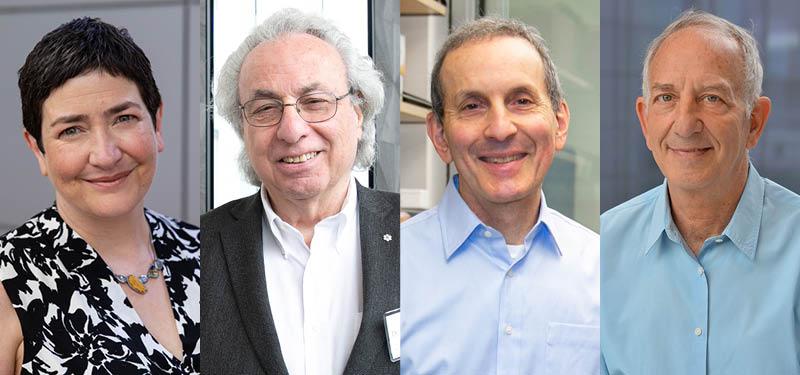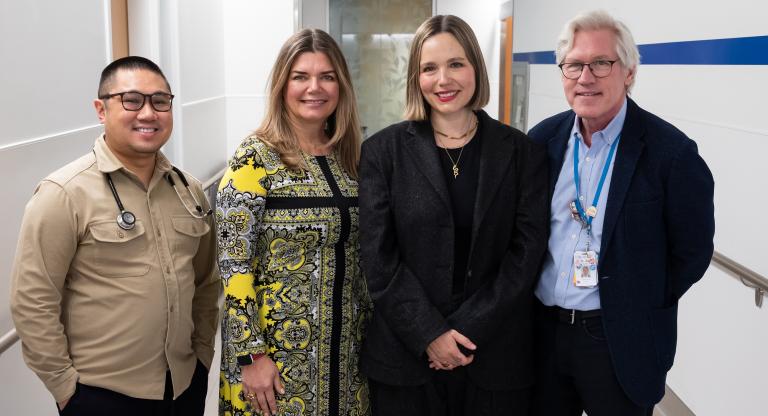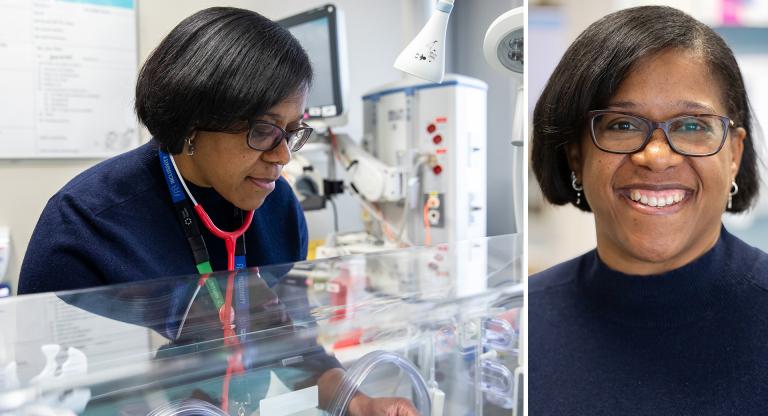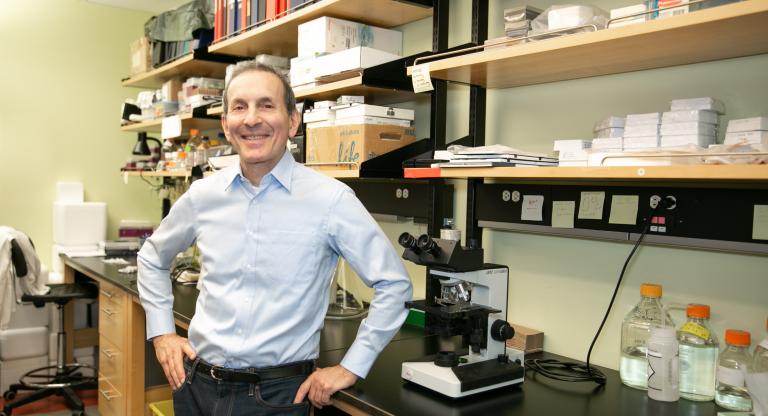Sinai Health researchers among most cited in the world (again)

Four researchers from the Lunenfeld-Tanenbaum Research Institute (LTRI), part of Sinai Health, have been named among the top cited globally. The annual Highly Cited Researchers list was released recently by Clarivate, a data analytics company specializing in academic publishing.
The recipients of the prestigious distinction are Dr. Anne-Claude Gingras, Director of the LTRI and Vice-President of Research at Sinai Health, and Drs. Bernard Zinman, Daniel Drucker and Steven Gallinger. All are Senior Investigators at the LTRI. Sinai Health affiliate researchers, Dr. Gary Bader, Associate Member at the LTRI and Principal Investigator at the Donnelly Centre for Cellular and Biomolecular Research, University of Toronto, and Dr. Eddy Fan, Director of Critical Care Research, at Sinai Health and University Health Network, have also been named among the most cited by Clarivate.
Of the world’s population of scientists and social scientists, Highly Cited Researchers are 1 in 1000, according to Clarivate.
The latest list comprises individuals at universities, research institutes and commercial organizations who have demonstrated a significant and broad influence in their research fields, according to the company website.
The researchers are selected based on the number of papers they published over the past decade that rank in the top 1 percent by citations in their field and publication year in the Web of Science, a Clarivate-owned platform that provides referencing and citation data in academic publishing.
Dr. Zinman is a clinician-scientist who has been featured among the world’s most-cited researchers every year since the inaugural list was published in 2014. His research focuses on the long-term complications of diabetes, evaluating new therapies, and diabetes in Indigenous communities. He was the inaugural Director of the Leadership Sinai Centre for Diabetes, a unique, multi-disciplinary outpatient unit that is one of the largest diabetes clinical research units in Ontario. For his contributions to research and patient care, Dr. Zinman was recently named Officer to the Order of Canada.
Dr. Drucker has been named top cited every year since 2018. An Officer of the Order of Canada, he is best known for his pioneering work on the glucagon-like peptide 1 (GLP-1) that led to the development of treatments for type 2 diabetes and obesity, including the popular weight-loss drugs that have been named the 2023 breakthrough of the year by the Science magazine. Dr. Drucker continues to research how GLP-1 drugs impact metabolism beyond weight loss. You can read about his recent discovery on how these compounds dampen inflammation across the body.
Dr. Gallinger is a clinician-scientist and surgical oncologist who has worked for many years understanding the genetic basis of gastrointestinal cancers. His work had provided insights into the development of simple genetic tests to predict response to chemotherapy treatments. He has also created and managed familial colon and pancreatic cancer tumour banks which he and other researchers are using to identify new genes that predispose to these diseases. Dr. Gallinger is currently the Head of Clinical Translation at the Ontario Institute for Cancer Research.
Dr. Gingras is a leader in quantitative proteomics, which involves the comprehensive study of proteins, their quantities, and interactions within cells. More recently, her team began unpacking the functional significance behind a vast protein diversity in the brain. Within weeks of the 2020 COVID-19 outbreak, Dr. Gingras’ team also developed a serology test that could accurately measure the level of immunity following natural infection or vaccination. The assay was widely used across Canada to help answer critical questions surrounding immunity to SARS-CoV-2 and help guide public health decisions around immunization timing and frequency.
“It is a great honour to have our research acknowledged in this way, and to be in the company of such esteemed colleagues whose continued contribution to the betterment of health is deservingly recognized,” said Dr. Gingras.












